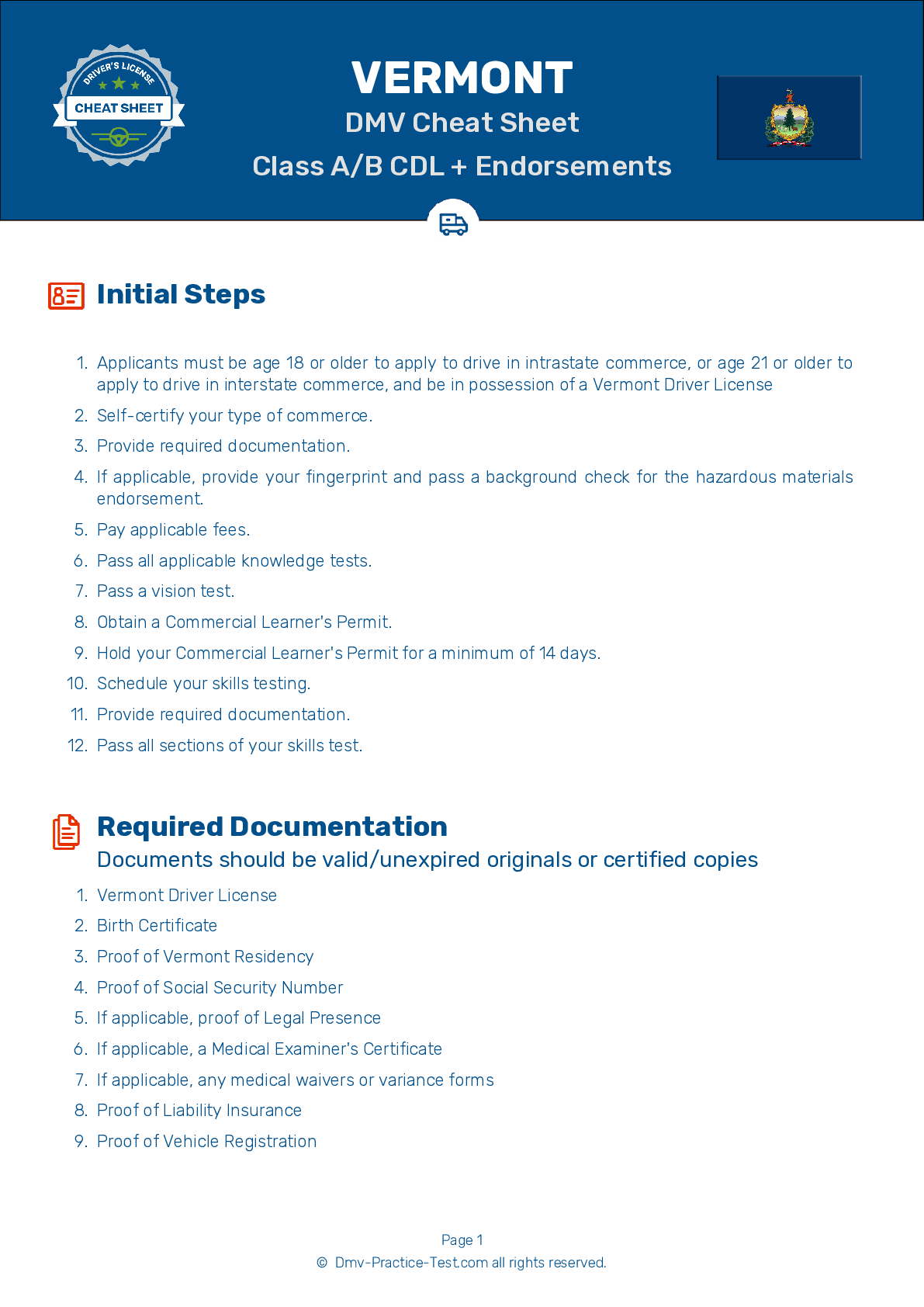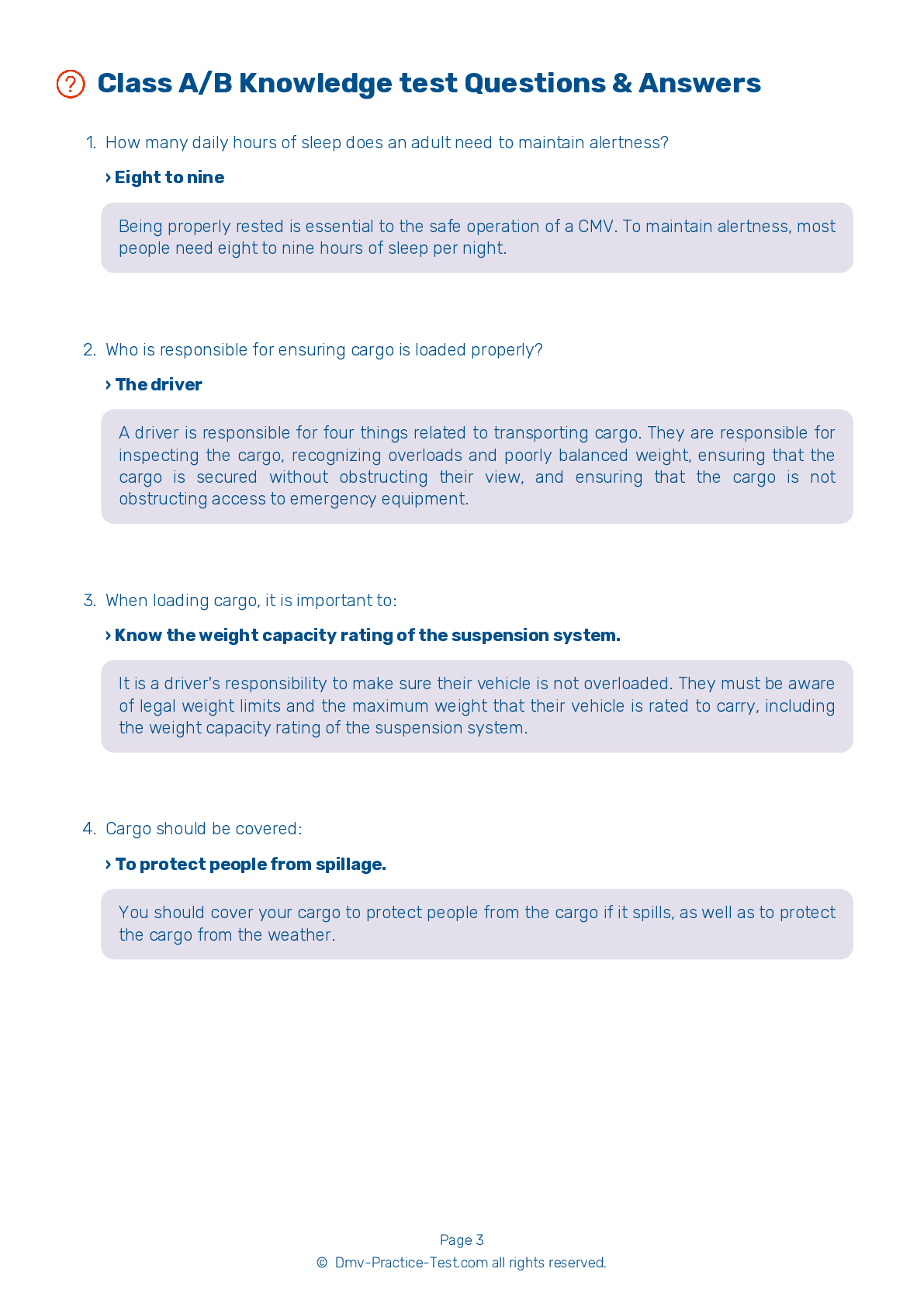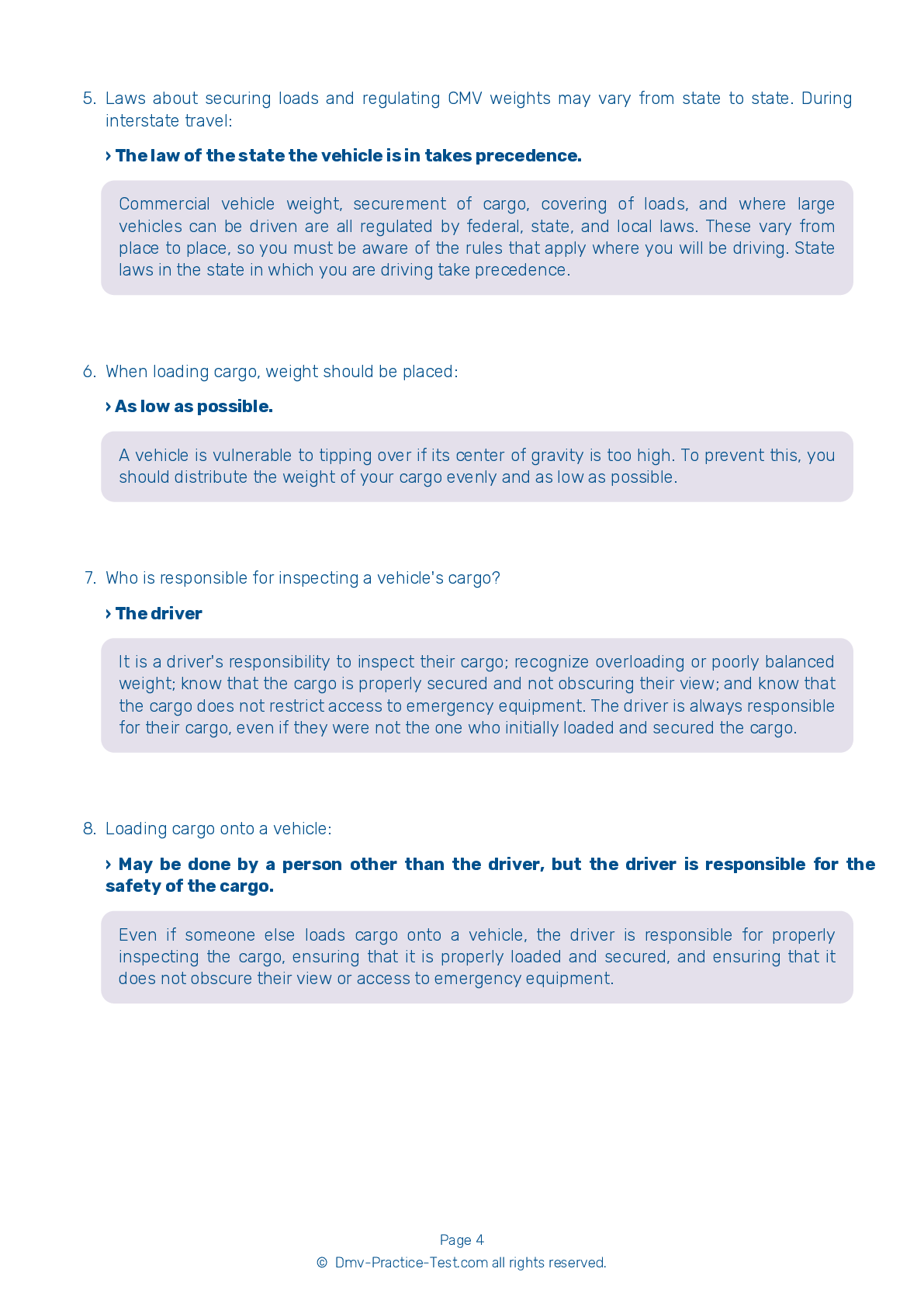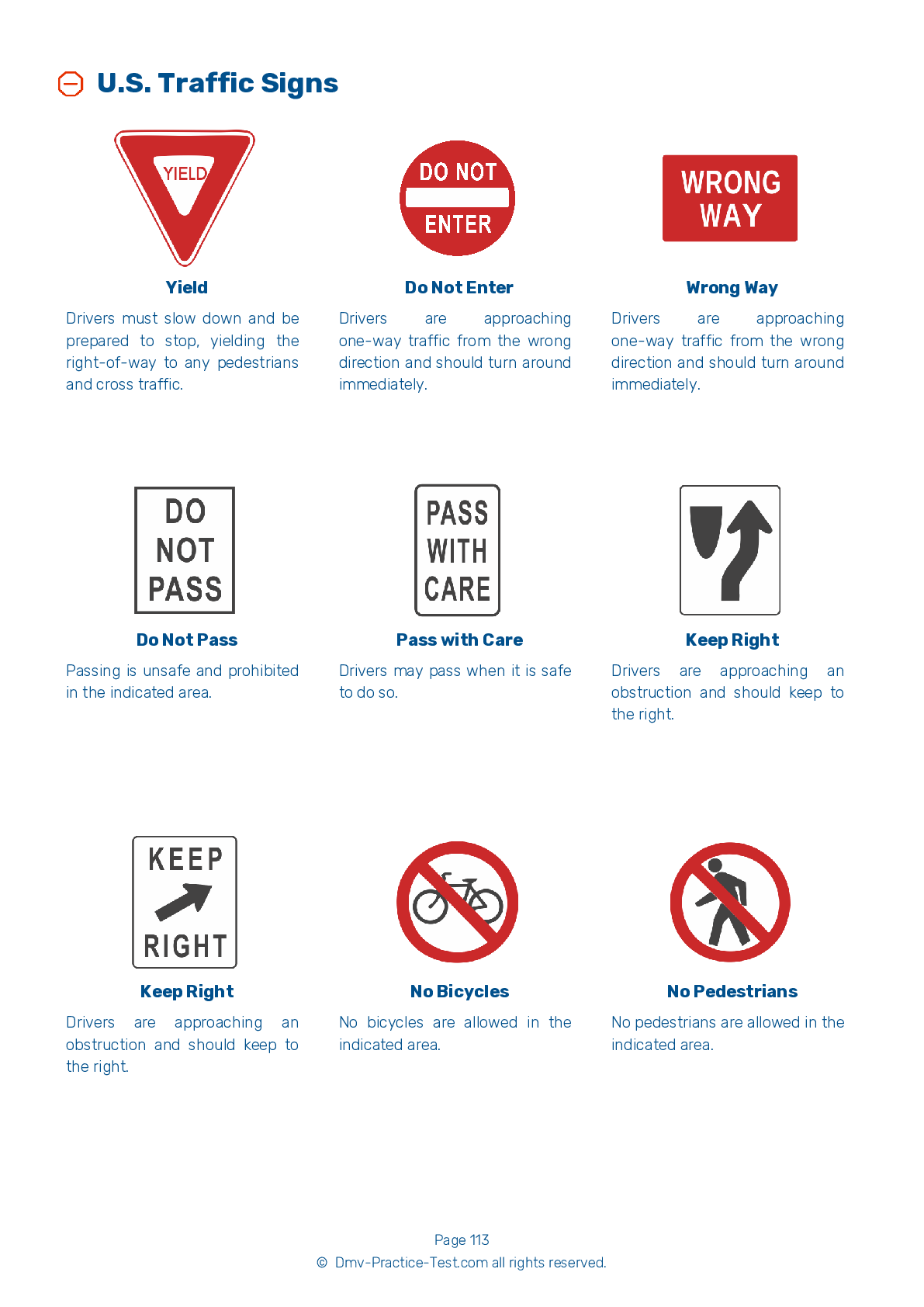Double #2
Double Triple Test | Vermont 2026 #2
Train for FREE with our Vermont CDL double triple practice test online. The official exam test consists of several obligatory parts, with all of them checking your knowledge of different blocks of road rules. If you need to obtain a VT CDL double triple license in 2026, practice as much as possible. Free sample tests published on our website will help you check and improve your knowledge and boost your grades. Please bear in mind that DMV requirements may vary from state to state.
20
16
20
1 . Rims with welding repairs:
Wheels or rims that have had welding repairs are never safe for use.
2 . Which of the following is not a sign of tire failure?
If you experience tire failure, you may hear the loud "bang" sound of a blowout or feel a heavy thumping or vibration in your vehicle. If steering begins to feel heavy, or if the rear of your vehicle begins to fishtail, you should stop to check your tires.
3 . All trailers made after ____ must be equipped with Anti-Lock Braking Systems (ABS).
All trailers and converter dollies manufactured on or after March 1, 1998 must have Anti-Lock Braking Systems (ABS).
4 . Which part of a combination vehicle is the most likely to turn over?
In double and triple combinations, the trailer farthest from the tractor is the most vulnerable to rollover.
5 . A low air pressure warning signal should activate:
In an air brake system, a low air pressure warning signal must come on if air pressure in the tanks falls below 55 psi. This warning signal may come in the form of a light, a buzzer, or a wig wag.
6 . A low air pressure warning signal:
Any vehicle with air brakes must be equipped with a low air pressure warning signal.
7 . Alcohol begins to affect the body:
Alcohol consumption impairs muscle coordination, reaction time, depth perception, vision, judgement, and inhibition. For some people, signs of impairment may begin with the first drink of alcohol. It is safest to not operate any motor vehicle after consuming alcohol in any amount.
2026 Vermont | Frequently Asked Questions
To secure a CDL Bus endorsement in Vermont, you need to have a valid Commercial Driver's License (CDL). You then need to pass the passenger endorsement knowledge test and the school bus endorsement knowledge test. After passing these tests, you must successfully complete a skills test in the type of school bus you will be driving.
To obtain a CDL Bus license in Vermont, you must have a valid driver's license and pass the CDL general knowledge test. Then, you'll need to get a Commercial Learner's Permit (CLP) and practice on public roads with a qualified CDL holder. After that, pass the CDL skills tests, which include vehicle inspection, basic controls, and road test.
While Vermont doesn't explicitly require specific training for a CDL Bus endorsement, it's highly recommended. Training can help you pass the written knowledge tests and the skills test, which includes pre-trip vehicle inspection, basic vehicle controls, and on-road driving. Experience in driving similar vehicles can also be beneficial.
CDL Bus licenses in Vermont are classified under Class B or Class C. Class B CDL is for single vehicles like city buses. Class C CDL is for vehicles designed to transport 16 or more passengers, including the driver, not covered by Class B. Each class requires passing specific written knowledge tests and skills tests related to the type and size of the vehicle.
No, you cannot use your personal vehicle for the CDL Bus driving test in Vermont. The vehicle used for the test must match the class and type of vehicle you will be driving with your CDL. For a bus endorsement, this means using a commercial bus of the correct capacity and type.
The CDL Bus driving test in Vermont evaluates skills like pre-trip vehicle inspection, basic vehicle control, and on-road driving. You may be asked to perform maneuvers such as backing up, parallel parking, or docking in a designated area. On-road driving evaluates your ability to handle intersections, railway crossings, curves, and various traffic conditions.
Yes, additional medical prerequisites are required for a CDL Bus endorsement in Vermont. Applicants must pass a Department of Transportation (DOT) physical examination every 24 months. This exam assesses general physical health, vision, hearing, and the potential presence of other conditions that could affect driving ability, such as diabetes or high blood pressure.
No, it's not permissible to transport passengers without a valid CDL Bus endorsement in Vermont. The endorsement is required for drivers who wish to operate a vehicle designed to carry 16 or more passengers, including the driver. Driving without the proper endorsement can result in legal penalties, including fines and suspension of your CDL license.
The CDL Bus endorsement can be added to your existing CDL license in Vermont. You don't need to apply for a new license altogether. However, you will need to pass the Passenger Endorsement Knowledge Test and a skills test in the vehicle type you wish to be endorsed for. Ensure to have your current CDL when you apply for the endorsement.
Yes, there are restrictions for drivers with a CDL Bus endorsement in Vermont. Drivers must comply with federal hours of service regulations, which limit driving hours to prevent fatigue. Also, drivers must pass a physical exam every two years and are subject to random drug and alcohol testing. Additionally, any traffic violations or accidents can result in the suspension or revocation of the endorsement.



